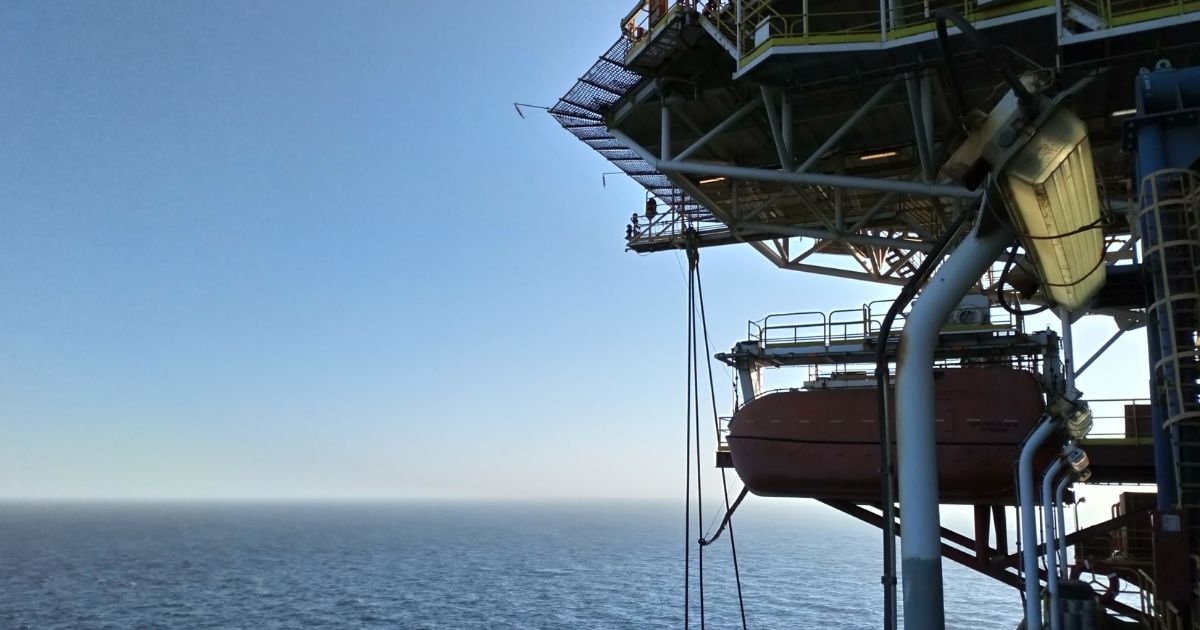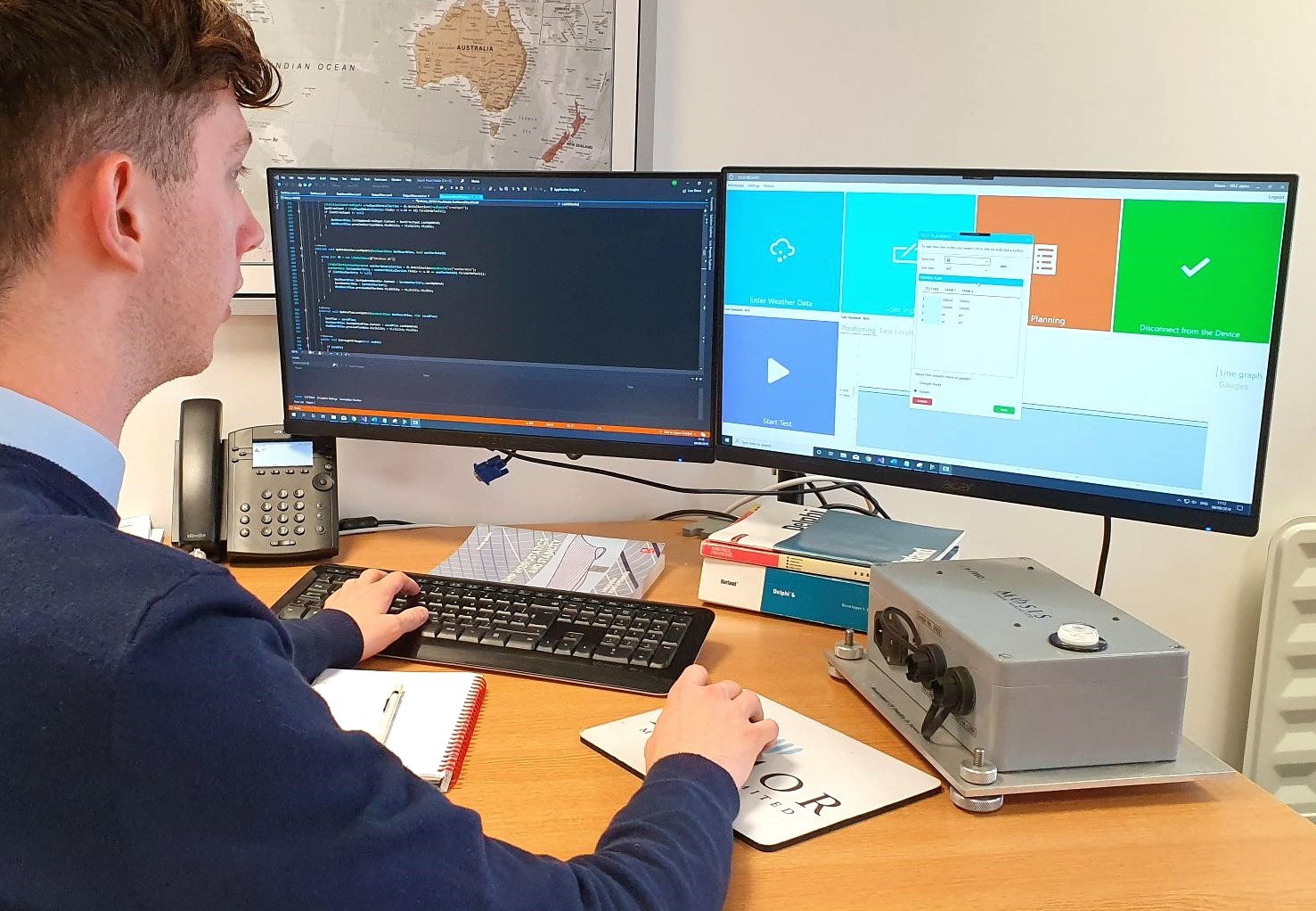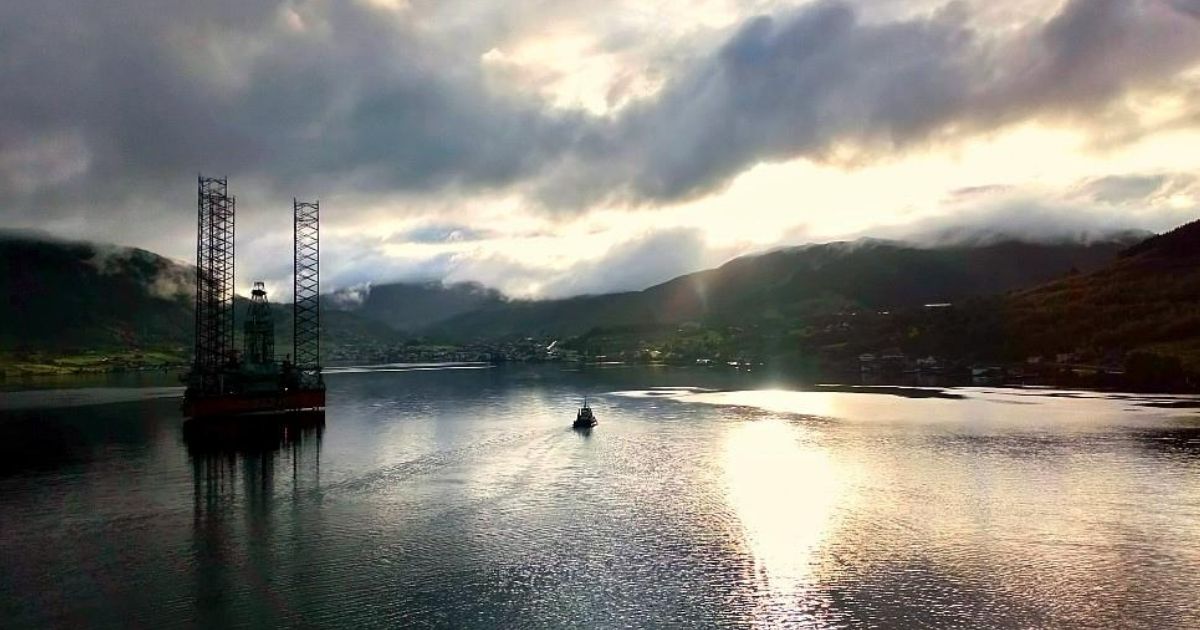Aberdeen-based, maritime technology and consultancy business, Tymor Marine, has successfully completed a remote deadweight audit for a semi-submersible oil and gas drilling rig in Norway. The project was conducted for a leading international provider of offshore drilling services.
Believed to be the first of its kind, the remote survey was developed by Tymor in response to travel and social distancing restrictions imposed during the COVID-19 pandemic. Completing the audit remotely enabled the rig to comply with its statutory obligations on schedule and return to service without delay. Deadweight surveys on drilling vessels are required every five years, or after major changes, and are normally performed by a team of auditors conducting onboard inspections. The surveys are used to determine the weight and distribution of a vessel’s variable load, which includes the crew and their effects, temporary equipment, cargo, fuel and water. This allows the lightweight (net structural and fixed weight of the vessel) to be determined by comparing the deadweight calculation with the draught measurement (water displacement). Any change in the lightweight reflects a change in the structure of the vessel, which must be approved by the vessel’s own Flag State maritime authority.
 Vessel deadweight audits can now be conducted remotely by Tymor rather than by traditional ‘in-person’ addended surveys.
Vessel deadweight audits can now be conducted remotely by Tymor rather than by traditional ‘in-person’ addended surveys.
Following close collaboration with the client, the maritime authority and the industry regulator, Tymor developed a new set of remote procedures which were approved in advance of the survey. Having established these new standards, they will now be available for similar audits in future. Preparatory survey work commenced while the rig was still operational offshore and continued during its transit to a Norwegian shipyard for scheduled work. Under guidance from Tymor, the rig crew provided the required data, plus photographic and video evidence, which was shared between the partners along with the analysis results and quality checks. The maritime authority attended virtual meetings and critical stages of the survey remotely, via video link. Once the rig was ready to depart the shipyard, the final draught measurements were recorded and witnessed by the rig management, Tymor Marine and the maritime authority. The highly collaborative process resulted in a successful audit and timely certification of the vessel.
Kevin Moran, Managing Director at Tymor explained: “Conducting the deadweight audit remotely, during the COVID-19 pandemic, allowed our client to meet their obligations, continue with scheduled activity and avoid any unplanned downtime. Despite extensive global travel and social distancing restrictions, plus our remoteness from the worksite, we were able to use the recorded data, produce calculations and have these accepted by the authorities. Importantly, we also built a digital record of information along the way that can itself be audited or referred to in future work.
 Remote technology, consultancy and survey solutions are offered by Aberdeen-based Tymor Marine.
Remote technology, consultancy and survey solutions are offered by Aberdeen-based Tymor Marine.
“Due to the success of this project we plan to investigate further opportunities to provide remote survey solutions to our clients. With partner collaboration, much of this work can also be carried out while the vessel is still in-service or in-transit, enabling even greater efficiency. “The remote deadweight survey builds on our track record of industry-firsts and continuous investment in R&D to improve operational efficiencies in the maritime sector. Indeed, our pioneering *MOSIS (Measurement of Stability in Service) technology, was introduced to the oil and gas industry thirty years ago but still remains the only industry approved, continuous, in-service alternative to traditional inclining surveys. We have been developing advanced solutions ever since and are currently working on exciting AI and autonomous shipping technology for the future.”
*MOSIS
The MOSIS (Measurement of Stability in Service) system provides operators with continuous real-time data suitable for certification/ verification and safety management purposes. The in-service data can be used to meet regulatory requirements and avoid the time and expense of the operator having to pull the vessel off station to perform an inshore inclining test. MOSIS is valuable for any vessel, but particularly those working at the limits of compliance, or where deck load is commercially important or has significant variability, affecting the vessel’s centre of gravity and stability.


